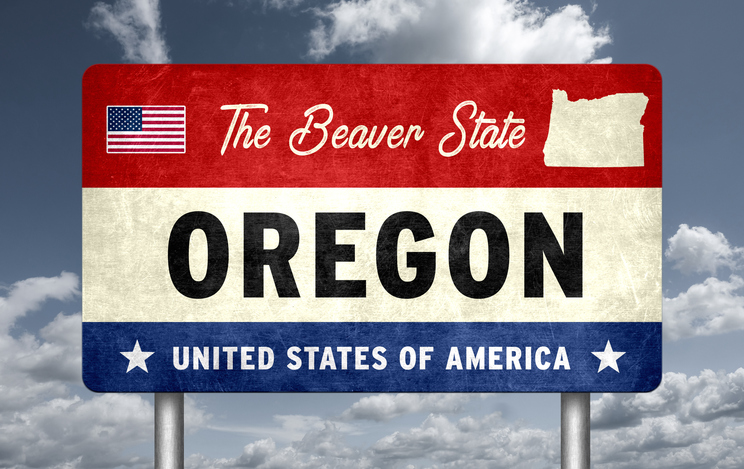
Debt Collection Services in Oregon: Laws, Processes, and Best Practices
Introduction
Debt collection services in Oregon are essential for maintaining the financial stability of businesses and individuals. Whether it involves unpaid medical bills, overdue credit cards, rental debt, or delinquent business accounts, collection agencies provide the tools and expertise needed to recover funds. These agencies work on behalf of creditors with the goal of recovering money efficiently while preserving professionalism and compliance with the law.
Why Debt Collection Services Are Vital
The value of debt collection services extends far beyond recovering unpaid balances. These agencies:
Help businesses avoid writing off bad debts as losses
Provide strategies for managing future debt risks
Strengthen cash flow and reduce financial uncertainty
Ensure compliance with both state and federal regulations
By partnering with collection professionals, businesses can focus on growth while still ensuring delinquent accounts are managed properly.
How Debt Collection Agencies Operate
Debt collection agencies act as intermediaries between creditors and debtors. Their role may include:
Sending reminder notices and demand letters
Making phone calls to negotiate payment plans
Setting up structured repayment arrangements
Using skip tracing to locate debtors
Reporting overdue accounts to credit bureaus
Pursuing legal action if other methods fail
Agencies rely on advanced technology, analytics, and proven techniques to increase the likelihood of recovery, all while adhering to strict compliance standards.
Oregon Debt Collection Laws and Consumer Protection
In Oregon, debt collection agencies are regulated by both state laws and federal laws such as the Fair Debt Collection Practices Act (FDCPA). These regulations are designed to:
Protect consumers from harassment or abusive practices
Ensure transparency and fairness in communications
Provide clear information about a debtor’s rights and responsibilities
For creditors, compliance with these laws is not only required but also protects their business reputation.
The Statute of Limitations on Debt in Oregon
One of the most important legal aspects of debt recovery is the statute of limitations—the time frame during which creditors can legally pursue unpaid debts through the courts.
General debts (such as credit cards, medical bills, and personal loans): 6 years from the date of the last payment or charge.
Rental debt: 1 year from the date rent was due or the lease was broken. Landlords and property managers must act quickly to pursue collection of unpaid rent.
Written contracts (such as mortgages): These may have different timelines depending on the contract.
It’s also important to note:
Partial payments or a written acknowledgment of debt can restart the statute of limitations.
Once the statute expires, the debt becomes time-barred. While creditors can still request payment, they lose the legal right to sue for collection.
For creditors, understanding these deadlines is essential to avoid losing legal leverage. For debtors, knowing the statute of limitations offers protection against unlawful or outdated collection attempts.
Why Businesses Outsource Debt Collection
Chasing delinquent accounts internally is expensive and time-consuming. By outsourcing to professional collection agencies, businesses benefit from:
Higher recovery rates with lower costs
Access to compliance expertise and legal knowledge
Detailed reporting and transparency throughout the process
Improved cash flow and reduced write-offs
More time to focus on core business operations
Atlas Financial Services: A Leader in Oregon Debt Recovery
One of the most trusted names in Oregon debt collection is Atlas Financial Services. With years of industry experience and deep knowledge of Oregon’s regulatory environment, Atlas offers businesses ethical, results-driven solutions.
Services Provided by Atlas Financial Services:
Consumer Debt Collection – recovery of unpaid debts from individuals, including credit cards, medical bills, and personal loans, handled with professionalism and respect.
Commercial Debt Collection – focusing on unpaid invoices and service fees owed by businesses, ensuring financial stability for clients.
Debt Portfolio Management – strategic analysis and custom recovery plans for businesses with large portfolios of delinquent accounts.
Atlas also prioritizes transparency by providing regular updates and detailed reports, giving businesses peace of mind that their collections are being handled effectively.
Best Practices for Creditors
To maximize recovery efforts, Oregon creditors should:
Maintain Detailed Records – Document all communications, payments, and charges.
Act Quickly – Respect statutes of limitations, especially with rental debt.
Communicate Clearly – Negotiate repayment plans that are realistic and sustainable.
Know the Law – Stay compliant with Oregon regulations and federal guidelines.
Best Practices for Debtors
For individuals and businesses managing debts, the following strategies can help:
Understand Your Rights – Know the laws that protect you from harassment and unlawful practices.
Track Statute Deadlines – Be aware of time limits on debts to avoid paying on time-barred accounts.
Communicate Proactively – Work with creditors to negotiate fair repayment plans.
Seek Professional Help – Consult a financial advisor or attorney if debt issues become overwhelming.
Conclusion
Debt collection in Oregon is a complex process influenced by strict laws, compliance requirements, and varying statutes of limitations.
For creditors, timely action and the support of a professional agency like Atlas Financial Services increase recovery rates, improve cash flow, and reduce financial risks.
For debtors, understanding rights, communicating proactively, and knowing time limits on debts—including the 1-year statute for rental debt—ensures fair treatment and better financial decision-making.
By combining awareness of Oregon’s laws with the expertise of professional debt collection services, both creditors and debtors can navigate debt recovery with confidence and clarity.
